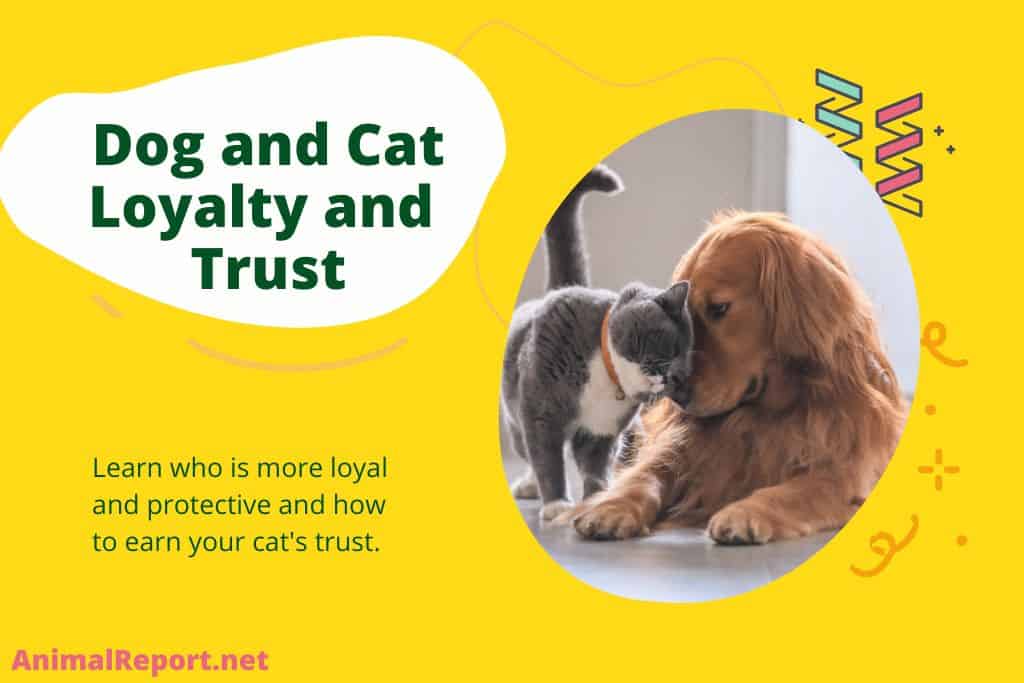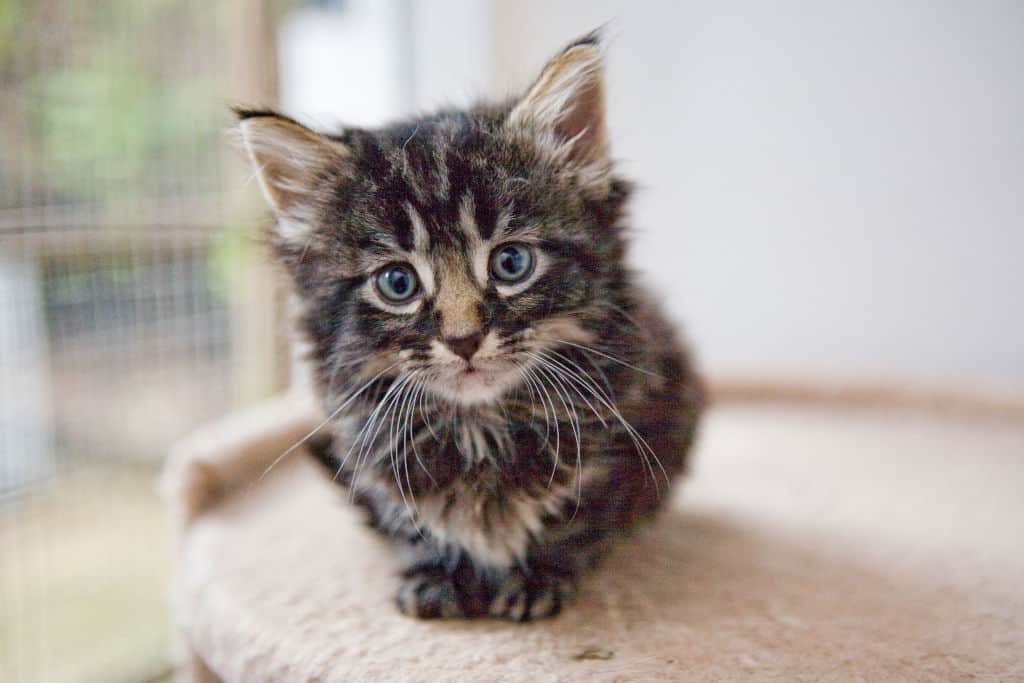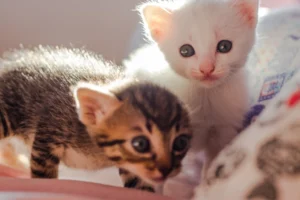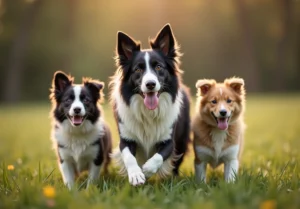Working for an animal’s trust and learning to speak their language is worthwhile, and an animal’s trust is a gift, regardless of who provides it initially.
Regarding trust and loyalty, dogs and cats will almost always be different. Dogs are incredibly expressive of emotions, and it is usually relatively simple to figure out what they think. On the other hand, cats have very nuanced body language, and everything has a meaning.
These animals, like people, are the result of their upbringing and experiences. Whether you’re a dog or cat person, trying to gain your pet’s trust or at least understanding it is worthwhile.

Are Dogs More Loyal Than Cats?
Dogs were bred to the point where they are genetically and psychologically inextricably linked to humans. They understand what human pointing means as young adolescents without being taught. They immediately recognize that it is purposeful communication.
Cats were not friendly creatures before domestication and are not social animals now. Domesticated cats can bond with and respect certain humans. But they are not social by nature in the same way that dogs are, which is why cats are not entirely tamed.
Cats defend themselves as well as they can, but they are smaller than dogs and tend to escape conflict, whereas dogs prefer to face it.
When you bring a cat into your home, you should know that they have not bought into the entire subservience issue. If you can’t respect their independence, you will be disappointed.
But if you’ve ever wondered what goes on in a ferocious predator’s mind, you’re in for a treat and great entertainment.
Dogs are simple to win over. They desire to be part of a pack and prefer a pack leader (you) who is genetically designed. A new dog will snortle, lick, and lie down on your neck to give you the benefit of the doubt. Because of this, dogs will always appear more loyal than cats.
If your animal trusts you, please appreciate that trust and do everything you can to foster it.
The Loyalty Dichotomy: Cats vs. Dogs
While both cats and dogs have their unique ways of showcasing loyalty and trust, their expressions and reasons can differ immensely.
A dog’s tail wag upon your arrival is an overt display of affection and loyalty, while a cat might subtly express loyalty by following you from room to room, or purring when near you. It’s crucial to interpret these gestures accurately to appreciate their emotions.
Many misconceive cats as aloof, especially when compared to dogs. But, when a cat chooses to be with you, it’s a profound sign of trust and loyalty.
One common misconception is that cats are aloof and indifferent, especially when juxtaposed against the outgoing and eager-to-please nature of dogs. But, that’s just the cat’s unique way of exhibiting loyalty.
Unlike dogs, who evolved as pack animals and rely heavily on their pack (or human family) for survival, cats evolved as solitary hunters. This independence can often be mistaken for aloofness, but in reality, when a cat chooses to spend time with you or seeks out your company, it’s a profound sign of trust and loyalty.
Why Do Dogs Trust People More Than Cats Do?
Dogs exist solely as a result of human intervention. Humans developed dogs to be our friends, which is how most dogs are. A dog is all about friendship and love. They are highly sociable animals who consider you a part of the pack, which is why they trust you.
On the other hand, there are almost no two cats with identical personalities. They are all distinct in terms of how/when/who they greet. Cats are more accustomed to being self-sufficient. They don’t get lost as quickly and can fend for themselves more easily.
Additionally, dogs rely more on humans than cats but love unconditionally and hold no grudges. Because of this, they have a strong bond with their human owner.
Each animal’s loyalty is shaped by its evolutionary history, individual experiences, and unique personality. While dogs may wear their hearts on their sleeves, cats possess a more understated, yet equally profound, depth of loyalty and trust. One isn’t necessarily better than the other; they’re just different.
Who Is More Protective, Cats or Dogs?
Dogs are sociable animals that hunt and fight in packs and may regard you as the pack leader. Cats are lonely hunters who associate for convenience and think of you as another solitary animal. Because of this, dogs will always be more protective of you.
Cats lack social pack structure, so they lack the instinct to protect their owners, just as they would not guard another cat. However, cats are all unique.
On the other hand, some dog breeds are protective, but this is only sometimes the case. And other dog breeds aren’t born to be protective, yet they are.

Cats are more solitary animals, so that they won’t be as protective in general, but I’m sure you’ve encountered cats who were dog-like in their friendliness, so you can assume there are just naturally protective cats.
Still, there are about ten cases of protection dogs for every occurrence of protective cats. And even though cats can be trained, they are significantly more challenging to teach. Their protective instinct is weak, so they will likely fail to protect you.
How to Earn a Cat’s Trust?
Every cat is unique, but adult cats generally take a long time to pick up new behaviors. Spending time together with feather and string toys is your best option.
Consider lowering yourself to their level and reaching out your hand. Your hand should be at ease. Before you pet him, let him approach and rub against your hand.
Cats retain good deeds. When he does ask for your attention, please spend some time rewarding him. Cats track how frequently you reply to them and use that information to determine how often they will respond to you when you call for their attention.
Be cautious and patient if you save a stray cat. Don’t touch it if it doesn’t first brush up against you. Give it as much control as possible, including your level of physical activity. Start with a little area that provides solitude and the bare necessities, then let it grow from there. Consider giving it a hiding spot.
If you playfight with them as kittens, they grow to be lively with humans. If that never occurs, they can remain distant their entire lives.
Establishing trust takes time. Cats are very much creatures of habit. Therefore, it takes them some time to accumulate enough experiences to recognize that this particular human is safe.
How Long Does It Take for a Cat to Trust You?
You can train a cat to trust you by playing with them, providing them with good food, and showing them respect for its personal space. Like with people, it will take time to establish a relationship, but you can win them over with enough time and love.
The time will mostly depend on whether you adopted an adult cat or a kitten, how they spent their life before coming to you, and their personality. All cats are different, and many are unusual. Some stay weird forever, while others become regular, humorous, and normal again.
They trust you very immediately if you get them as a kitten. If the cats were abandoned, getting them from the shelter may take some time.

The cat’s age and disposition also determine the time for them to trust you. It may take longer if they are terrified. Some people snuggle, while others do not. Some cats will only snuggle with certain people.
If the cat was abused, restoring that relationship and regaining its trust can take a long time. They will approach calmly, allowing you to pet them only when they want to. They want reciprocal respect and dart out of your reach.
However, cats can be the best pets you’ve ever had. A complicated connection laced with chuckles and laughs, embraces and cuddles. Be good to them, and they will return the favor.
FAQs
What is the most loyal animal?
Some people can form strong bonds with dogs, while others do so with cats, goats, parrots, and rats. There are plenty of others besides well-known dogs and cats, such as penguins, goats, horses, pigs, ducks, horses, pigeons, geese even wolves.
Do dogs have stronger emotional bonds than cats?
A study done in 2021 showed that participants’ relationships with their cats were better than those with their dogs, partly because the perceived cost of the relationship with cats is less. However, emotional closeness was higher with dogs than cats, suggesting that dogs and people bond emotionally more deeply than cats.
Do cats love their owners?
Cats are similar to people, meaning some cats are more affectionate than others.
Depending on the definition of love, dogs and cats generally don’t express their emotions as people do. We anthropomorphize them. However, they behave in a way that seems pleasurable and advantageous to both people and animals, which is equivalent to them loving us.
Can cats warn you of danger?
Cats patrol the perimeter of their territories as part of their natural habit. It’s not difficult to train your cat to inform you (verbally or by return) about someone crossing the threshold. He growls and is territorial, indicating how much he wants to protect it.
Are cats or dogs more loyal?
Both cats and dogs showcase loyalty, but in different ways. While dogs are overt in their affection and loyalty due to their pack nature, cats, being solitary hunters, have a more subtle way of expressing their loyalty. It’s more about individual personalities than a general species trait.
How do cats show their loyalty compared to dogs?
Cats display loyalty through subtle actions like following you around, purring when near you, giving the ‘slow blink’, or occasionally bringing ‘gifts’. Dogs, on the other hand, might wag their tails, lick, or jump with joy upon seeing their owners.
Can dogs sense trustworthiness in humans?
Yes, many believe that dogs have an innate ability to sense the intentions of humans, making them excellent judges of character. Their reactions to new people can often be based on this ability to gauge trustworthiness, coupled with their past experiences.
Alex, a passionate animal lover, has experience in training and understanding animal behavior. As a proud pet parent to two dogs and three cats, he founded AnimalReport.net to share insights from animal experts and expand his knowledge of the animal kingdom.




